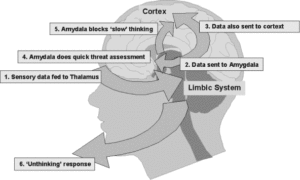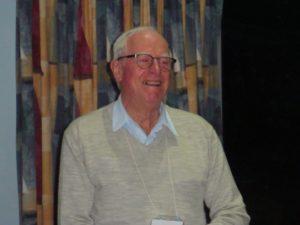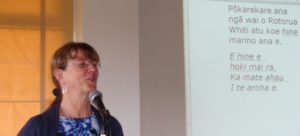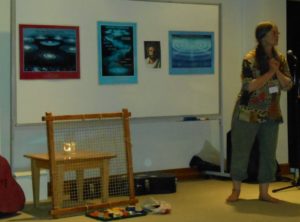Introduction
Faith can be looked on in many ways. Being a fundamental element of any consideration of religion, it receives the attention of the revelators in so many ways that the word is mentioned 543 times in The Urantia Book. You are all familiar with the importance of faith, so I am treading familiar ground.
At bottom, faith is about trust. What we trust is where we put our faith. And we often use the term faith colloquially to apply all sorts of events and experiences. We bargain in good faith, we have faith in people or groups or teams, we discharge duties with faith, we have faith in theories or arguments and so on.
I propose to put aside all these colloquial uses of the word, and focus on the principal usage of the revelators, namely faith in deity, and in particular God, the Universal Father. The underlying meaning of trust still applies. We have faith in God because we trust Him, and we trust Him because we have faith in Him. I don’t know which way around to put it. But since faith is a personal experience perhaps it varies from person to person. The point is that faith is personal—it is your faith and my faith—but in order to talk about it we have to generalise it as well. These generalisations are what the revelators consider when trying to teach us about it. But we experience faith personally—it is a personal experience—and that experience varies from person to person. We can help one another a lot by comparing our different experiences of faith, even though the experience may be “too deep for words”.
Her are a few quotes I found on the internet from children.
- Faith is following your own path. If you never have faith you will always follow someone else’s path.
- Faith is courage.
- Faith means trusting in something you can’t see.
- Faith is trusting the voice within.
These give us some idea of how faith appears to children—they were about 12 or 13 years old.
Uncertainty
The aspect of faith that I wish to emphasise today centres on the idea of uncertainty. Faith is how we cope with uncertainty. This is expressed in the bible –quoted in The Urantia Book on page 1091.
Now faith is the substance of things hoped for, the evidence of things not seen. Hebrews 11.1
Here Paul of Tarsus is putting his point of view to believers among the Hebrews. Notice that as well as hope Paul is talking about uncertainty—“the evidence of things not seen”. When we see things—detect them with our physical senses—we know them. I know that often we make mistakes about how well we actually do know them, but Paul is drawing the distinction between “knowing” by seeing and accepting by faith. For those things we believe, but cannot see, we can have faith.
Faith and belief are not identical. Faith is experienced when a belief has come to determine our approach to life. But belief is necessary for faith. It is almost as if we develop trust in our belief—trust enough to live our lives by that belief. The plain matter of fact is that, as is pointed out on page 51, we always know less than we can believe.
Belief has attained the level of faith when it motivates life and shapes the mode of living. The acceptance of a teaching as true is not faith; that is mere belief. Neither is certainty nor conviction faith. A state of mind attains to faith levels only when it actually dominates the mode of living. [Paper 101:8.1, page 1114.5]
Belief of some kind is clearly a precondition of faith, but believing is not the same as really trusting that belief. It is when we have the courage to place so much trust in that belief that it motivates our entire mode of living that we experience faith.
And it is the uncertainty of our belief—the fact that we don’t “know” it by seeing or touching it—which requires courage to live by it. To be convinced of the correctness of an interesting theory, to weigh up evidence for and against a proposition which is of no real concern to us—these sorts of activities lead to beliefs which do not affect our attitudes to life. But to entertain a belief in something for which there is no material evidence requires a different kind of response. And that takes courage.
There is no material evidence for God’s reality. We cannot see or touch Him. But we believe He is real in spite of the taunts of credulity we hear from non-believers. And it is by trusting our belief, by allowing it to dominate our mode of living– by having faith– that our uncertainty is nullified. We become internally convinced without actually being demonstrably certain. We are certain within ourselves without being able to demonstrate that certainty to others. Uncertainty has not been replaced by certainty. We are still uncertain in the worldly sense, but within ourselves we have that faith which transcends uncertainty.
In knowledge alone there can never be absolute certainty, only increasing probability of approximation; but the religious soul of spiritual illumination knows, and knows now. [Paper 102:2.4, page 1120.1]
I must say I sometimes wonder how this can be. How can we be so certain of something which it requires faith to know. And faith after all is lack of certainty. I think the answer is that it is not actually our conscious mind that is certain about God. It is really our soul which is conscious of God, not our conscious mind, and our consciousness is not fully aware of the soul. The soul is above our conscious mind, in our super-consciousness, and our conscious mind is only dimly aware of it. It is the adjuster which infuses some awareness of the soul into our consciousness, enough to give us the conviction of knowledge.
By some means we maintain faith in conjunction with uncertainty. The revelators say it so well.
Uncertainty with security is the essence of the Paradise adventure–uncertainty in time and in mind, uncertainty as to the events of the unfolding Paradise ascent; security in spirit and in eternity, security in the unqualified trust of the creature son in the divine compassion and infinite love of the Universal Father; uncertainty as an inexperienced citizen of the universe; security as an ascending son in the universe mansions of an all-powerful, all-wise, and all-loving Father. [Paper 111:7.1, page 1223.3]
And it is worth mentioning that we are potentially to be classed with the Agondonters, those who can maintain faith under conditions of extreme uncertainty because of isolation due to planetary rebellion.
Part of our ability to be certain within uncertainty is due to our desperate need for God. Because of the planetary rebellion and subsequent Adamic default we do not have the harmonious social conditions which would, on a normal world, give cultural support to faith in God. So truth seekers feel a personal urgency to find help.
“And it is not so much what mind comprehends as what mind desires to comprehend that insures survival; it is not so much what mind is like as what mind is striving to be like that constitutes spirit identification. It is not so much that man is conscious of God as that man yearns for God that results in universe ascension. What you are today is not so important as what you are becoming day by day and in eternity. [Paper 111:1.5, page 1216.6]
When we are confused, floundering around for something secure, something which won’t let us down, we cry out to God. There seems nothing else to help us. But neither can we be certain of His help other than by faith.
Our journey towards eternity is by faith—uncertainty with security.
The Evolution of Faith
- Proto-Faith
When Andon and Fonta responded to the 7th adjutant mind spirit and became humans, they received personality and the cosmic mind activated the potentials of the three cosmic intuitions.
There exists in all personality associations of the cosmic mind a quality which might be denominated the “reality response.” It is this universal cosmic endowment of will creatures which saves them from becoming helpless victims of the implied a priori assumptions of science, philosophy, and religion. [Paper 16:6.4, page 191.7]
This response reveals itself as three cosmic intuitions which are innate in the cosmic mind which endows will creatures. These three realities are:
- Causation—the domain of the physical senses.
- Duty—the domain of philosophy and reason.
- Worship—the domain of religious experience.
Ever since then all mortals on Urantia have shown potential response to these intuitions. And it is the 3rd intuition which is the antecedent of faith.
It is important to understand that every normal minded person is born with the potential of faith as long as that potential is not actively discouraged or ridiculed.
There are present in all normal mortals certain innate drives toward growth and self-realization which function if they are not specifically inhibited.
[Paper 100:1.6, page 1095.1]
But there is a long road before anything much like faith evolves. To begin with men are dominated by fear—fear of the unknown—and nearly everything is unknown. The worship urge, derived from the sixth adjutant, becomes the only antidote to fear. After the appearance of the six sangik races the most extraordinary measures are taken to deal with dreams, ghosts, evil spirits and other terrifying manifestations of the imagination. Magic, taboos, sacrifices were all employed to alleviate fear of the spirits and influence their supposed behaviour.
After many millennia there begins to evolve a more systematic approach, and something like religion begins to appear in attempts to organise—to develop cults and priesthoods, with whole tribes believing more or less the same things. But it is not until revelation attracts attention that much that we would categorise as faith emerges. Only slowly does the notion evolve that the universe is orderly, and not totally random in its effects on humans.
This is the era of sacrifice as the antidote to fear. The awful dread of those unknown dreams and figments thrown into conscious life by the sixth adjutant led men to propitiate spirits, demons and multitudes of gods by sacrifice—of animals and people—as gifts to win their favour, so that these fearsome entities would leave them alone.
Very few people received adjusters in this era, but some did. Andon and Fonta had received adjusters although few of their progeny did. But the Andonic race did have its great revival in the time of Onagar, and all of the sangik races similarly produced great leaders who had adjusters. But the great majority were not capable of receiving adjusters, and many of those who did received them only on loan as candidates for spirit fusion.
The revelation associated with the Planetary Prince and Dalamatia disappeared virtually without trace following the Lucifer Rebellion. Van and Amadon kept the ancient traditions alive, but to only a very small group in limited territory. They managed to establish the Garden of Eden for Adam and Eve, but their subsequent default deprived the world of the cultural stability which would otherwise have resulted in the widespread adoption of genuine faith in God.
As a result, the monotheism of Dalamatia and Eden had been shortlived with most of the world in polytheistic barbarism or even more primitive notions of nature worship or spiritism.
There is some genuine faith here and there among individuals, but the general population languished without it. Monotheism had been all but forgotten.
- Collective Faith.
Up to this point it has been predominantly evolution which has governed the worshipful inclinations of the bulk of humanity. Revelation has been introduced twice, but the planetary rebellion has prevented its influence except in isolated and unusual circumstances.
It was the revelation of Machiventa Melchizedek which began the establishment of faith as we recognise it today. He revealed God as reliable and trustworthy rather than erratic and capricious as He was previously considered to be. As “the priest of El Elyon, the Most High, the one and only God” he interacted with Abraham, established a monotheistic tradition, and portrayed God as a powerful monarch who was nevertheless predictable and trustworthy.
At long last the vision of a god who was reasonable made its appearance. El Elyon was not given to capricious or arbitrary likes and dislikes. He made bargains and kept His word. You could trust Him.
As the revelators tell us, this ideal gave rise to Moses and the Hebrew prophets, with the establishment of the Jews as a people in the Middle East—though after a long period of exile in Babylon.
Melchizedek’s influence over much of the inhabited world was profound. His followers made widespread missionary drives into central and southern Asia to the extent that in the sixth century BC there was a major flowering of religious culture following the appearance of great teachers among the people of those regions. They modified Brahmanic teaching in India, established Buddhism in India and China, stimulated Lao-tse and Confucius also in China, as well as Zoroaster in Persia and gave impetus to what became Judahism.
This was an era of tribal and city state collectivised faith. Members of the various cultural groups adopted and adapted the teachings of the Brahmans, Gautama, Lao-Tse, Confucius, Moses and others into collective belief systems followed by their fellows, sometimes under political compulsion to establish civic unity. The progression from polytheism through henotheism to monotheism was undertaken especially by the Hebrews, and was attempted by others, notably Ikhnaton in Egypt and Zoroaster in Iran, though both of these failed and their peoples reverted to polytheism. But the Hebrews under Moses and the line of prophets who followed him maintained monotheism among enough of the people to prepare them for Michael’s final bestowal as Jesus.
But faith during this era was tribal and national rather than personal. Even though it was real faith which dominated the lives of the people, it was faith in a national deity, not so much a personal one. They knew God as a powerful supernatural being, but He was interested in the tribe or nation rather than the individual. People followed the rules, particularly of sacrifice, because to do otherwise deprived the tribe of divine favour. But God was seen as a personal being, even though He displayed many human characteristics, and people did allow their belief in Him to dominate their behaviour.
This was real faith, stepped up by Melchizedek’s revelation from the purely evolutionary faith which preceded it.
- Institutionalised Faith
The incarnation of Michael of Nebadon as Jesus of Nazareth was the greatest revelation of God the world has ever received. His great contribution was the amplification of the conception of God as a father.
Jesus did not invent the idea of God as a father, there had been inklings of it among the more advanced descendents of the Nodites and Adamsonites, but his teaching and his person were the impetus which established fatherhood as the fundamental nature of God’s relation to men.
When all is said and done, the Father idea is still the highest human concept of God. [Paper 196:3.35, page 2097.3]
This notion of the fatherhood of God, with its corollary the brotherhood of all men, resonates to this day with the followers of Jesus as the most fundamental truth about our situation. This conception of the persons of the entire cosmos as constituting a family, God’s family, is so profound and yet so simple and obvious, that people of faith can readily accept it.
The kingdom of God is within you was probably the greatest pronouncement Jesus ever made, next to the declaration that his Father is a living and loving spirit.
[Paper 195:10.4, page 2084.4]
And to put this together with Jesus’ pronouncement that God relates directly with persons from within, without the need for priests, or other intermediaries laid the foundation for the future advent of personal religion, as opposed to the institutional religions now extant.
As we know, Jesus was not able to establish his teaching immediately, and Peter and Paul re-interpreted his teaching into what became another institutional religion—Christianity—a religion about Jesus himself rather than his teaching. But the revelators insist that his message will eventually become the norm, and in the distant future the whole world—indeed all Nebadon—will worship our Universal Father and be as siblings to our fellows.
But the immediate result of his revelation was the establishment and crystallization of the institution of the Christian church. This institution preserved the notion of God as all powerful and merciful, but His fatherly aspect was preserved more as a powerful, demanding and vengeful figure rather than a loving father as we understand it. Quite possibly, fathers in those days tended to be tyrannical compared with modern fathers, so the fatherly aspect did not imply what we mean today. Possibly also this is related to the fact that later Christians were unable to follow Jesus in accepting the equality of women.
For a number of reasons, the church became hard and tyrannical—the revelators describe it as “totalitarian”—and the old idea of sacrifice for favour re-emerged in the form of Jesus sacrifice for the world’s sins. But the faith those days was intense. People died for forms of words which expressed their faith. They were tortured, burnt alive, beheaded, all for the sake of their faith which they misguidedly thought depended on mere words. Their belief really did dominate their lives—it was real faith. Jesus’ releasing of the Spirit of Truth allowed adjusters to indwell all normal minded humans, so adjusters were at work in the world in unprecedented numbers. And many of those who were indwelt exhibited faith in God beyond any notion of God’s real nature.
Part of the problem was the persistence of the idea of Hell which so terrorised many people that they would endure great suffering to avoid heresy, which they thought would consign them to an eternity of suffering. The revelators do not reveal exactly where this idea originated, but the notion implies universal duality—good and evil—which possibly entered Christianity from remnants of Zoroaster’s philosophy. But there was always disagreement about what was heretical and what was just progressive reform. Hell waited for you if you got it wrong. And I personally remember what a relief it was for me to accept that Hell was a human invention which did not actually exist.
As so called heresies multiplied, the church divided into factions which linger on to our time as denominations. Jesus simple message of the fatherhood of God and the brotherhood of man became submerged in complicated rationalisation and theology, based as much on preserving the influence of the church as on Jesus’ teaching, and that seems to be where we find ourselves today. To a large extent Faith has been perverted.
Although the revelators do not depict all the details, they make it clear that all religions of this era, and particularly the three monotheistic religions—Judaism, Christianity and Islam—were afflicted with theological disputes, heresies and sectarianism. These problems are the result of demanding uniformity of belief rather than unity of faith, the concomitant of the institutionalisation of faith.
For now, those of us who practise personal religion must face the fact that in everyday common usage, we do not practise religion at all. To most of today’s people, if you do not practise Christianity, Buddhism, Hinduism, Islam , Judaism—or some one of the institutional religions—you do not practise a religion at all. Of course to us, our faith says otherwise.
The answer Jesus gave to Thomas’ question covers this matter so well that it is worth drawing attention to it. It is too much to quote in full, but Paper 155:5 &6 p 1728.3 to 1733 covers it. We find here one of those brilliantly lucid portrayals of Jesus’ teaching which illuminate the whole nature of religious faith.
- Personal Faith
The Urantia revelation amplifies Jesus’ teaching that God relates to all personalities as a father. The human analogy for the reality of the universe is the family, with its intimate relationships, its mutual dependence, its tolerance of honest mistakes, its warm hearted encouragement for progress, its acceptance of differences—all those things which the best families aspire to. Add to this Jesus’ insistence that the human personality requires no intermediaries between it and God, and the religion of personal experience is launched. No institutions, priests, prophets, saints, mystics or any other intermediary can intervene between the truth seeker and the Universal Father. The individual seeks the will of God for himself, with the help of the indwelling adjuster and all associated co-ordinate spiritual agencies. And truth is a process of each person faith-discovering God for himself.
No social system or political regime which denies the reality of God can contribute in any constructive and lasting manner to the advancement of human civilization. [Paper 195:10.7, page 2084.7]
Those of us who practise the personal religion of the fatherhood of God and the brotherhood of man live in faith that this true religion will eventually supplant the institutional religions. For ourselves, we hope that faith will start us out on the path to Paradise and beyond. Faith makes it easy to accept.
“The world is filled with hungry souls who famish in the very presence of the bread of life; men die searching for the very God who lives within them. Men seek for the treasures of the kingdom with yearning hearts and weary feet when they are all within the immediate grasp of living faith. Faith is to religion what sails are to a ship; it is an addition of power, not an added burden of life. There is but one struggle for those who enter the kingdom, and that is to fight the good fight of faith. The believer has only one battle, and that is against doubt–unbelief.” Paper 159:3.8 p1766.4.
Maintaining our faith starts us on our journey.
The Journey
After receiving personality and making our first moral choice we receive our adjuster, and begin to grow our soul, and it grows in response to freewill personal choice. The soul is actually a morontia phenomenon, being a blend of material and spirit substances derived from personal mind and adjuster influence, and we are not conscious of it. At this stage we know almost nothing and are guided by the faith of a little child. The qualitative status of the soul is entirely dependent on faith, but its quantitative growth depends on action, progress through the psychic circles. The psychic circles are more than purely spiritual, they are cosmic, embracing our relation to the Supreme. But faith is required through every stage. As we respond to auto-revelation from the adjuster—and also to any epochal revelation we are fortunate to encounter—our faith grows to that of an adult. As Jesus said:
“Increasingly, must you yield the fruits of the spirit as you progress heavenward in the kingdom of God. You may enter the kingdom as a child, but the Father requires that you grow up, by grace, to the full stature of spiritual adulthood.” [Paper 193:2.2, page 2054.3]
This may require some faith testing experiences. There are times when we blunder and the consequences can be painful. At such times we may be tempted to abandon our spiritual quest, but the revelators point out that:
Few persons live up to the faith which they really have. Unreasoned fear is a master intellectual fraud practiced upon the evolving mortal soul. [Paper 48:7.4, page 556.4]
Life on an evolutionary planet is not a bed of roses, but we learn to have faith in the ultimate benevolence of God’s universe, even though we are beset by fear and confusion. At such times we can remember that:
It is not the mission of the Mystery Monitor to smooth your ruffled feelings or to minister to your injured pride; it is the preparation of your soul for the long ascending career that engages the attention and occupies the time of the Adjuster.[Paper 108:5.6, page 1192.1]
We need to be tough as well as sensitive.
The Local System Cluster
As we progress through our life here on Urantia, we may learn a bit, but progress is entirely by faith. When we are resurrected on the mansion worlds as morontia beings we go through the remedial regime to make up for what we failed to achieve in material form. It is interesting to note that the remedial therapy eradicates procrastination, insincerity, problem avoidance, unfairness and ease seeking. Anyone who thinks this will be easy doesn’t know these vices as I do!
Eventually,we complete the psychic circles and begin conscious interaction with our adjuster after achieving the first psychic circle. This must be an amazing experience, to find ourselves able to communicate with, and receive advice from our adjuster, who is still separate from us while being within us. Our spiritual progress is much accelerated, but the really astonishing experience is still to come when we fuse with our adjuster. This usually takes place on the fifth or sixth mansion world and is one of the high points of our entire career. And it has come about by our faith—faith in the Universal Father, faith that our adjuster is a fragment of the Father, faith that if we follow the adjuster’s leading into the unknown we are doing what we are alive to do, faith that it is worthwhile doing that, faith that we will never again be separated from our Father. But even after fusion our adjuster can’t teach us much. He can only impart what we are capable of receiving, and that capability must evolve with experience. This is a peculiar situation because after fusion the adjuster is a part of the” us”, so I am a bit confused myself as to what “we” really means. There is only one personality—the one we start with here which the adjuster comes to share—so the fact that the absolute aspect of “you” can’t reveal itself to the finite aspect of that same “ you” is a little hard to grasp. There is part of us which is composed of absolute reality—God—and there is that part of us which is composed of relatively primitive morontia reality progressing by creature experience.
Faith transmutes potentials to actuals in the spiritual world, but potentials become actuals in the finite realms of the Supreme only by and through the realization of choice-experience. [Paper 110:6.16.4, page 1211.2]
We have to evolve enough through experience for the adjuster to increasingly reveal its knowledge to the joint “us”.
Notice that we are called “faith sons of God”. We know God by faith, not by “sight”. And because Urantia is isolated on account of the Lucifer rebellion, we are known as agondonters, meaning “evolutionary will creatures who can believe without seeing, persevere when isolated, and triumph over insuperable difficulties even when alone. [Paper 50:7.2, page 579.1]
The implication is that on isolated worlds, knowledge is exceptionally restricted, so faith must be even stronger than usual for progress to occur. This situation persists on the mansion worlds.
So by the time we get to Jerusem, the system capital, we have more or less eradicated our bad habits, fused with our adjusters and begun our education. Knowledge has grown, but so has faith. We will have experienced life in eight different morontia bodies, one for each mansion world and one for Jerusem itself. But we still navigate by faith.
The Constellation Cluster
After Jerusem we proceed to the Constellation cluster of worlds, of which there are 70 study worlds each with ten satellites, followed by Edentia itself, requiring 71 new morontia forms. (But now, because we are adjuster fused, we no longer need to be unconscious when we are re-keyed). Here our studies are sociologic and ethical, and we must learn to live with the univitatia as well as with one another in ever larger groups. The univitatia are the permanent citizens of Norlatiadek, but they are different from us and we have to learn to live with them in harmony. Our faith will be severely tested! But apparently this is the way to learn ethics, learning to transcend all those nagging little irritations which close contact with strangers can bring out. We are much helped by the Celestial Artisans through our 71 lives on the constellation headquarters. We know a lot more but we need a lot more faith as we are still living in uncertainty with security. We also learn about how the Most Highs conduct Norlatiadek—and I hope we get to know something of how they “rule in the kingdoms of men”, because that has always been a bit of a mystery to me.
The Melchizedek University
After our stay on Edentia, we proceed to the Salvington cluster, and enter the Melchizedek University.
Here we are being progressively spiritised. You’ll recall that our morontia bodies are composed of the interweaving of matter and spirit. Every time we progress to a new world there is an increase in the quantity of spirit in the weave, and we have had 79 bodies before Salvington, and 491 more in passing through the Melchizedek university and arriving on Salvington. It is on Salvington, in the presence of Michael of Nebadon himself, that we become first stage spirits ready to be launched into the Orvonton circuits. And we are still navigating by faith.
Indeed, most of the personalities of the local universe are dependent on faith, because with the exception of those who have been to Paradise and had personal experience of the Universal Father, no-one can be certain enough to be able to operate with the certainty of “sight”. This is particularly significant when we consider the rebellions in Nebadon, all three of which have originated with faltering of faith on the part of Lanonandek Sons. Because Michael deliberately created his Lanonandek sons so that they could comprehend the weaknesses of planetary mortals, they exhibit the possibility of succumbing to these same weaknesses, and every now and then some of them do. The Satania rebellion resulted from Lucifer, our System Sovereign, losing his faith in the existence of the Universal Father. Lanonandeks are not indwelt by adjusters, and as they have never been beyond Nebadon, their faith in Michael’s reign can be shaken.
In Lucifer’s case, he was highly competent, but could not respect the finaliters he encountered as he administered Satania. He thought they were part of Michael’s deception that all Nebadon, and everything beyond is dependent upon the upholding of God the Father and the other Paradise Deities. He could not detect the Father, and could not believe that Michael was His son. He thought he had seen through a massive fraud which was inhibiting his ability to complete his work, and decided to challenge Michael’s authority by putting in place his own scheme of development, which as we know, did not work.
To return to our journey, by the time we are first stage spirits we have fused with our adjusters, who guard us against such loss of faith—but we are still using faith to reveal our path. The adjuster knows, but cannot reveal to the composite “us” what is known until the requisite experience makes “us” able to comprehend it.
The Minor and Major Sector Clusters and Uversa
As young spirits we take off for Ensa, our minor sector, whose capital is Uminor the Third ruled by the Recents of Days. Here we study the physical aspects of energy control and stabilisation on the seven study worlds surrounding the capital under the supervision of the Master Physical Controllers who train us in administrative knowledge. Upon completion of these studies we have become second stage spirits and proceed to the major sector headquarters, Splandon, where our training is intellectual on the seventy study worlds around the capital. And we meet the Perfections of Days not just of Splandon, but also those of the other nine major sectors of Orvonton, before advancing as third stage spirits to the 490 study worlds of Uversa, the superuniverse capital, where we undertake our spiritual preparation for Havona. On Uversa the regime of the Ancients of Days governs the entire superuniverse.
So in the superuniverse we have studied physical reality in the minor sector, intellectual reality in the major sectors—all ten of them—and spiritual reality in the superuniverse capital, in preparation for our Havona career. But we are still faith sons. We have learnt a lot, but we still use faith to find our way towards the Father.
Faith most willingly carries reason along as far as reason can go and then goes on with wisdom to the full philosophic limit; and then it dares to launch out upon the limitless and never-ending universe journey in the sole company of TRUTH.
[Paper 103:9.7 , page 1141.5]
Faith drags reason along, and then takes up with wisdom in preparation of the endless quest for truth. Faith has taken account of science and philosophy, incorporated them into its reality, and pursues Truth with everything it has been able to encompass.
Things are hotting up!
Havona
We arrive on the seventh circuit of Havona as sons whose faith has been perfected. We are not perfect in any other way—only in purpose. Our faith has been tested and we are now immune to disappointment. But we still navigate by faith, and when we reach the sixth Havona circuit and begin the recognition of the Supreme we become fourth stage spirits. The fifth circuit from where we visit Paradise to recognise the Infinite Spirit, and the fourth circuit from where we recognise the Eternal Son, are the preliminaries to the great goal, the attempted recognition of the Universal Father on Paradise. And this coming face to face with God finally allows us to navigate by “sight”. The perfection of our faith has absorbed our faith into direct personal incontrovertible knowledge of God.
Paradise
At this point we become fifth stage spirits domiciled on Paradise, in training to be mustered into the Corps of the Finality, and upon taking the Finaliter Oath we become sixth stage spirits. We then return to the superuniverse to serve in whatever capacity is required of us. In many cases this service is at an apparently lowly level, something which was noticed by Lucifer at the time of his rebellion in Satania, and used by him as an argument that the Paradise ascension scheme was fraudulent. How wrong he was! Finaliters may serve humbly, but their faith is impregnable, and reinforced by personal incontrovertible knowledge of the Universal Father Himself.
Eventually, and partially as a result of the finaliters’ own efforts, every local universe in the Grand Universe enters the era of light and life. Notice that the finaliter oath is not to the Father, but to the Paradise Trinity, and the oath is administered by an Architect of the Master Universe—a transcendental being associated with absonite reality and the four outer space levels.
The Master Universe
Well what happens next? The Grand Universe completes its growth, God the Supreme emerges as a personal deity and the age of the first outer space level is inaugurated. The finaliters begin the invasion of the transcendental Master Universe and encounter absonite reality. Now we discover that our knowledge of God is only partial and relative. Our task of discovering Him as an absonite reality, as superpersonal, transcends our discovery of Him as personal, and we are once again required to navigate without knowledge. So what do we do? We fall back on faith, our faith which led us to God through the finite universe, and which we now employ to get us through the absonite universe, through the four ages of the outer space levels. The traversal of each one of these space levels consumes an entire universe age, for a total of four complete universe ages—trillions upon trillions of earth years. And at the end of that journey, we find the Father as superpersonal, and we find Him by faith. So after having found God as absonite, once again we have knowledge of Him. Once again faith has led us to knowledge of God, this time as a superperson.
What an adventure! What a romance! A gigantic creation to be administered by the children of the Supreme, these personalized and humanized Adjusters, these Adjusterized and eternalized mortals, these mysterious combinations and eternal associations of the highest known manifestation of the essence of the First Source and Center and the lowest form of intelligent life capable of comprehending and attaining the Universal Father. [Paper 112:7.18, page 1239.7]
Epilogue
And on it goes. Will something analogous occur after the entire Master Universe is settled in light and life and God the Ultimate emerges, and the finaliters begin the penetration of the Absolute? Probably. Once again they will navigate by faith in order to deal with absolute reality, trying to discover God as absolute. But they never can come to the end of this journey, because God the Absolute cannot emerge until the entirety of the Deity Absolute has been exhausted by experience, something which is impossible since the potentials of the Deity Absolute are extended by the very experience of which it is the source.
It may be possible that the finaliters will partially attain the Deity Absolute, but even if they should, still in the eternity of eternities the problem of the Universal Absolute will continue to intrigue, mystify, baffle, and challenge the ascending and progressing finaliters, for we perceive that the unfathomability of the cosmic relationships of the Universal Absolute will tend to grow in proportions as the material universes and their spiritual administration continue to expand. [Paper 9:8.8, page 116.9]
Consequently, we see that the finaliters will be navigating by faith forever in the absolute. We began as faith sons here on Urantia, and we end up in absolute reality still dependent on faith, always learning more but always encountering more to discover— and discover by the technique of faith.
And that’s the path of faith.
 I began this presentation with a simple experiment. Without any warning I caused a very loud, totally unexpected noise that startled the audience and elicited the typical gasps, shrieks and jolting movements from everyone as you would expect. I informed the audience that I had just activated their fear responses and pointed out that they were right no was one body, behaving in unison through their fear and asked, isn’t that great we’re all united like this together? Isn’t t the hat what we’re all seeking? some kind of togetherness that leads to brotherhood for us to live in peace and harmony and on to eternal life?
I began this presentation with a simple experiment. Without any warning I caused a very loud, totally unexpected noise that startled the audience and elicited the typical gasps, shrieks and jolting movements from everyone as you would expect. I informed the audience that I had just activated their fear responses and pointed out that they were right no was one body, behaving in unison through their fear and asked, isn’t that great we’re all united like this together? Isn’t t the hat what we’re all seeking? some kind of togetherness that leads to brotherhood for us to live in peace and harmony and on to eternal life? Now,I want to have a look at what’s actually going on when we experience fear (a very simplified version, a ‘neuroscience 101’). Refer to slide diagram of how fear works in the brain; the Limbic System – in the oldest, most primitive part of our brain:
Now,I want to have a look at what’s actually going on when we experience fear (a very simplified version, a ‘neuroscience 101’). Refer to slide diagram of how fear works in the brain; the Limbic System – in the oldest, most primitive part of our brain:


 The ANZURA conference, held in new Zealand 3rd to 6th October this year provided the chance for New Zealand readers finally to take their turn in hosting readers for a long weekend of communing, conferring, considering the gems in The Urantia
The ANZURA conference, held in new Zealand 3rd to 6th October this year provided the chance for New Zealand readers finally to take their turn in hosting readers for a long weekend of communing, conferring, considering the gems in The Urantia  Book from many different perspectives, creating new friendships, consolidating old ones, and celebrating just being together with people who share a passion for the great truths in our Book, and for sharing these truths in our various communities.
Book from many different perspectives, creating new friendships, consolidating old ones, and celebrating just being together with people who share a passion for the great truths in our Book, and for sharing these truths in our various communities. We began with a welcome ceremony on Friday night, which included a traditional song rewritten with our own words, and an acknowledgement of all the spirit beings who were undoubtedly gracing us with their presence.
We began with a welcome ceremony on Friday night, which included a traditional song rewritten with our own words, and an acknowledgement of all the spirit beings who were undoubtedly gracing us with their presence. People got to know new friends and Rosalie Steward, our resident storyteller, told us a tale about flax in the old days in New Zealand, and how it connected the early settlers and the Maori people. She introduced a weaving frame—part of the creativity theme—which all attendees young and old had a great time working on over the next few days.
People got to know new friends and Rosalie Steward, our resident storyteller, told us a tale about flax in the old days in New Zealand, and how it connected the early settlers and the Maori people. She introduced a weaving frame—part of the creativity theme—which all attendees young and old had a great time working on over the next few days. A consideration of the theme of this year’s ANZURA conference led to two key questions that I will explore in detail in this article:
A consideration of the theme of this year’s ANZURA conference led to two key questions that I will explore in detail in this article: One of the key traits that define us as human is our creativity. When we think about creativity we are likely to conjure up images of artistic pursuits such as painting, composing music, designing clothes or buildings, or writing poetry. However, The Urantia Book uses the word in a more neutral sense: as humans, we are capable of creating things of great beauty or, alternatively, things that are ugly and perverse. Moreover, the authors reveal that the source of our creativity is our thinking and that the arena of our thinking is our mind.
One of the key traits that define us as human is our creativity. When we think about creativity we are likely to conjure up images of artistic pursuits such as painting, composing music, designing clothes or buildings, or writing poetry. However, The Urantia Book uses the word in a more neutral sense: as humans, we are capable of creating things of great beauty or, alternatively, things that are ugly and perverse. Moreover, the authors reveal that the source of our creativity is our thinking and that the arena of our thinking is our mind. Often we think of the arts, especially the fine arts, when we think of creative living or a creative career. However, just as a point to ponder I would like to remind you of the implications and inclusiveness of one of Urantia’s philosophical counter-parts to moronitamota we learn on the mansion worlds:
Often we think of the arts, especially the fine arts, when we think of creative living or a creative career. However, just as a point to ponder I would like to remind you of the implications and inclusiveness of one of Urantia’s philosophical counter-parts to moronitamota we learn on the mansion worlds: